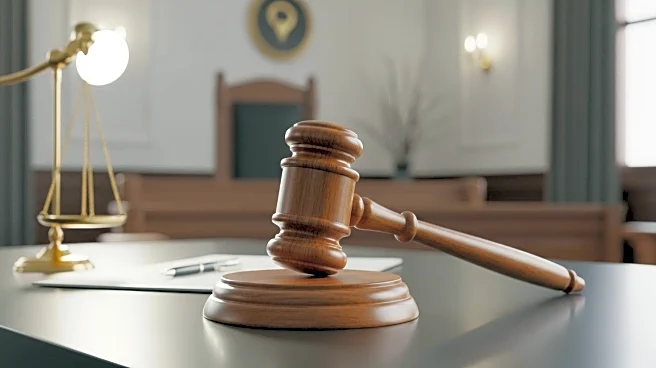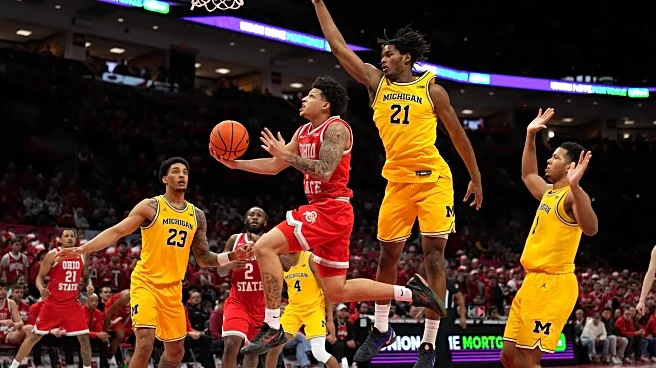What's Happening?
Ryan Routh, charged with attempting to assassinate President Donald Trump in South Florida last year, is set to represent himself during a pretrial conference. The trial preparations are underway, with jury selection scheduled to begin on September 8 in Fort Pierce federal court. U.S. District Judge Aileen Cannon approved Routh's request to represent himself, although court-appointed attorneys will remain as standby counsel. The incident occurred on September 15, 2024, when Routh allegedly aimed a rifle at President Trump while he was playing golf at his West Palm Beach country club. A Secret Service agent intervened, preventing the attack. Routh has pleaded not guilty to charges including attempted assassination, assaulting a federal officer, and firearm violations. Prosecutors have detailed Routh's alleged planning, including electronic messages seeking assistance to prevent Trump's election and discussions about sniper concealment.
Why It's Important?
The trial of Ryan Routh is significant as it involves serious charges of attempting to assassinate a former U.S. President, highlighting concerns about political violence and security threats. The case underscores the importance of the Secret Service and law enforcement in protecting national leaders. It also raises questions about the motivations behind such actions and the potential influence of political rhetoric. The outcome of the trial could impact public perceptions of security measures and the legal system's handling of politically charged cases. Additionally, it may influence discussions on the safety of public figures and the measures needed to prevent similar incidents.
What's Next?
As the trial progresses, key developments will include jury selection and the presentation of evidence, such as electronic messages and witness testimonies. The legal proceedings will be closely watched, with potential implications for security protocols surrounding public figures. The trial may also prompt discussions among political leaders and security experts on enhancing protective measures. Depending on the verdict, there could be broader societal reactions regarding political violence and its prevention. The case may also influence future legal strategies in similar cases, setting precedents for how such threats are addressed.
Beyond the Headlines
The trial of Ryan Routh may have deeper implications regarding the intersection of political discourse and violence. It highlights the potential for individuals to act on extreme political beliefs, raising ethical questions about the influence of political rhetoric. The case could lead to discussions on the responsibilities of public figures in moderating their language to prevent inciting violence. Additionally, it may prompt a reevaluation of how law enforcement and security agencies assess and respond to threats against political leaders, potentially leading to changes in training and protocols.










